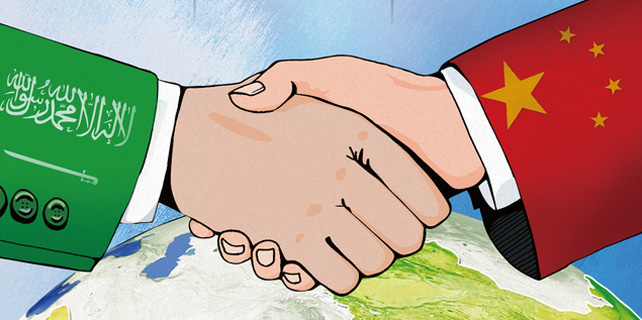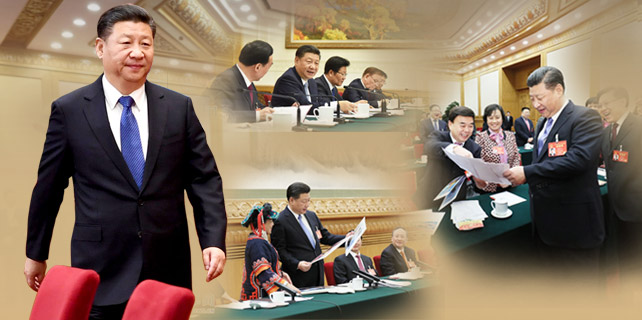Belt and Road Initiative -- idea from China but belongs to whole world
BEIJING — The Belt and Road Initiative has become the most popular public goods and platform for international cooperation with the brightest prospects in the world amid rising protectionism and unilateralism, Chinese Foreign Minister Wang Yi said on the sideline of the recently concluded China's two sessions.
Proposed in 2013 by Chinese President Xi Jinping, the initiative has witnessed continuous expansion of its "friend circle", and yield tangible benefits for countries along its routes.
It will provide unprecedented opportunities for the economic and social development of countries involved, as "it is the way leading to the community of shared future for mankind," said Gerrishon K. Ikiara, a senior lecturer at the University of Nairobi.
Ideal of openness, inclusiveness
With its guiding principles of extensive consultation, joint contribution and shared benefits, the initiative has become a chorus instead of a solo.
Inspired by the ancient major trading route that linked China with Asia, Europe and Africa for a long time, the initiative aims to modernize the ancient trade route while aspiring to create common prosperity within those areas.
While the trends of protectionism and unilateralism are rising, the Belt and Road Initiative has become the common cause of the world which will help rebalance the economic globalization by making it more universally-beneficial and inclusive, said Wang Yi.
"The Belt and Road Initiative is against narrow-minded protectionism and isolationism," said Sergei Luzyanin, director of the Far Eastern Studies Institute under the Russian Academy of Sciences. "We only had the Western European-American option of integration and economic development in the 1990s, now there is a new option from China."
Global growth stimulator
The construction of the Belt and Road Initiative benefits not only China itself, but also countries along the routes. Against the backdrop of insufficient global demand, the blueprint will make contribution to the world economic growth.
A report issued by China's Renmin University said China has already begun the coordination of its signature initiative with the development strategies of many countries along the route, such as Kazakhstan's Bright Road program as well as the Sustainable Development Strategy of Kyrgyzstan.
So far, Chinese enterprises have established 56 economic and trade cooperative areas in more than 20 countries along the routes, invested accumulatively more than $18 billion, and created $1 billion revenue and 160,000 jobs.
Last year, China's direct investment in 53 countries along the routes reached $14.53 billion and the total value of contracts China signed with 61 related countries reached over $126 billion.
This year, the construction of the Belt and Road Initiative will continue to be a growth point of the global economy, and the further expanding of trade exchange, infrastructure connectivity and financial intermediation will drive the development of production capacity cooperation, cross border e-commerce and other fields.
New engine for globalization
Globalization currently is facing various problems and challenges, and the China-proposed Belt and Road Initiative will become the engine for the future of globalization, said Pascal Lamy, former chief of the World Trade Organization, while addressing a public session recently in Jakarta.
Globalization in the past was basically driven by the West and now the new globalization will be motivated more by the East than the West, Amitav Acharya, writer of the popular book "The End of American World Order," told Xinhua in a recent interview.
When the West moves backward by erecting "walls", the East is building its gateway to the outside world, embracing globalization via China-proposed Belt and Road Initiative, Malaysia's New Straits Times said in an article published on its website.
Proposed in 2013, the initiative has so far gained the support of over 100 countries and international organizations, and more than 40 of them have signed cooperation agreements with China.
"China's initiative to jointly build the Belt and Road, embracing the trend towards a multipolar world, economic globalization, cultural diversity and greater IT application, aims at being highly efficient in terms of the allocation of resources, and at achieving a deep integration of markets among the countries concerned," said Keith Bennett, vice chair of the London-based 48 Club Group.
"It will thereby jointly create an open, inclusive and balanced regional economic cooperation architecture that benefits all," the British business leader told Xinhua.
- The Belt and Road Infrastructure Investment and Financing Demand: China’s Role(No. 17, 2017)
- SMEs urged to join Belt and Road Initiative
- Courts handling 'a boom' of Belt and Road cases
- China's Belt and Road Initiative exciting, transformational: world renowned economist
- Belt and Road Initiative gives globalization fresh impetus






















